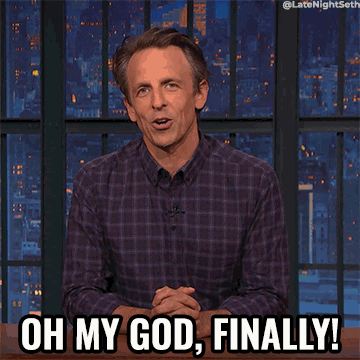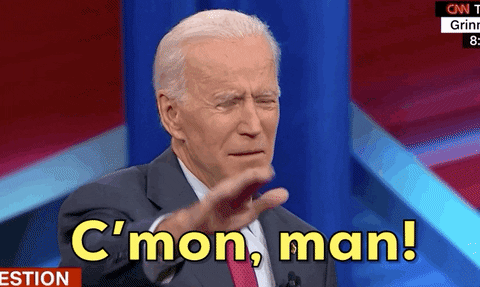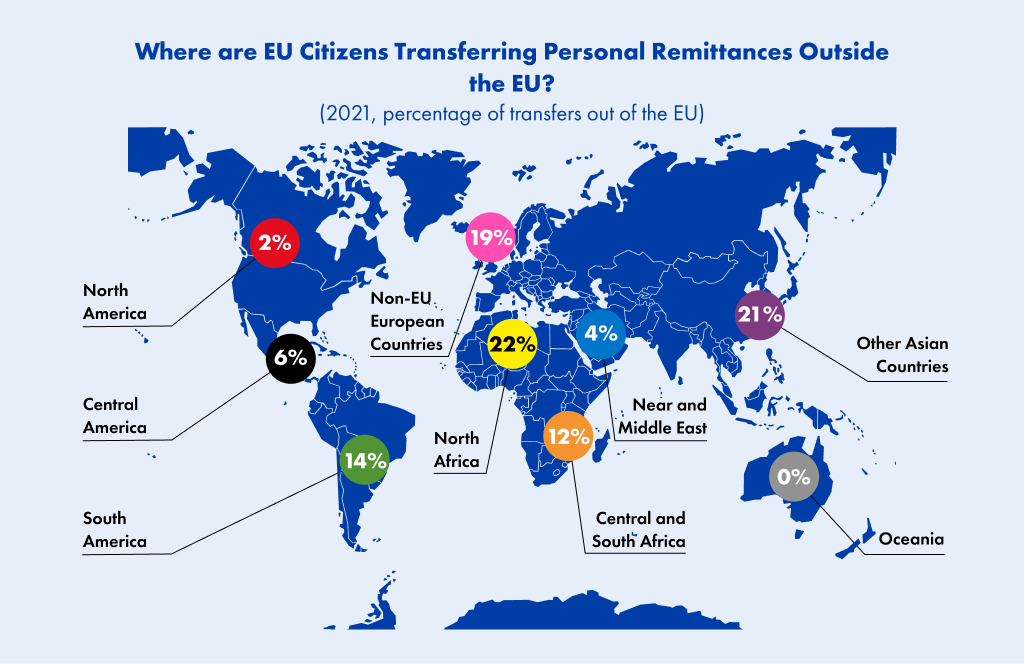Issue #113
Issue #113
Guten Morgen!
Welcome to another edition of the Krautshell! This week, as political Berlin is processing Chancellor Scholz’s announcement to send main battle tanks to Ukraine, Max argues against the prevailing wisdom in his House’s View. In addition, our main articles look at the transatlantic ramifications of “Tanks-Giving”, an amusing profile of one of the more eccentric German politicians, and Germany’s ongoing struggle with infrastructure permitting. Finally, enjoy Anna talk about – you guessed it – tanks and take a rather different approach than our other two articles, proving once again that the Krautshell team is quite a colorful bunch.


Anna Christian
FIRST, SOME SOLID INTEL:
A Genius Named Olaf(?)
If you followed US media this week, you are most certainly under the impression that President Biden saved German Chancellor Olaf Scholz’s ass by agreeing to deliver Abrams tanks to Ukraine. US media portrays the German Chancellor as reluctant to deliver, as the one blocking the Western alliance. You will probably be surprised to hear that after Scholz faced relentless criticism also by German media the last weeks in this regard, the tables here have nearly fully turned. How come?
There are media reports of insiders claiming Scholz wanted to have a pro-delivery choice for weeks but couldn’t risk the commitment without US backup to have a credible threat against Russia. Therefore, Scholz’s overall goal was from the beginning to get Biden’s commitment on MBT deliveries. Many experts arguing it wasn’t Biden who saved Scholz, but Scholz who successfully pressured the alliance to follow him. It’s credible to view this whole process at least as a short-term success for the German Chancellor – and (German) media is willing to do so. The story of the unselfish Chancellor, bearing criticism from media, opposition and international partners for weeks in a martyr-like style to get through with the right decision seems to work. But is it true?
Whether Scholz has always been the driving force, only history can tell (if even that). What’s definitely interesting from a German point of view: while Scholz’s predecessor Angela Merkel was one-of-a-kind in feeling political sentiment and acting according to it, Scholz seems to have mastered the art of not giving a damn about what is being thought of him when he believes he is acting right. What’s for sure, once again his old nickname “Teflon Olaf” seems to hold true.
An Excursion into the Wonderfully Whacky World of Hubert Aiwanger
If it weren’t for a certain comment from a certain member of the Krautshell team*, you probably never would have heard the name Hubert Aiwanger. Fear not, we’re here to answer questions you never even knew you had. The short answer: Mr. Aiwanger is the leader of the Freie Wähler (FW, Engl. Independent Voters) in Bavaria, and Deputy Minister President to Markus Söder. This week, Aiwanger made headlines across Germany for some particularly entertaining comments and tweets. But first, some background.
The FW are a party/loose coalition of independents who seek alternatives to the established parties. Despite the absence of a unifying ideology, the party can be understood as center-right, mixing elements of Christian conservatism with economic liberalism and a dash of right-ish populism. In any other German State, this party would not get anywhere near the government. However, it seems Aiwanger is just the right amount of nuts to appeal to enough Bavarians. He came on our radar this week for a particularly hilarious tweet about the Commission’s decision to approve two insect species for human consumption, stating that he was “sick of criticism about meat consumption,” while insect consumption is accepted “so vegans can get their animal protein.” Do you want to tell him? Or should we?
This, of course, led us to dive deeper. We found some other lovely positions we just had to share. Along the same lines of “woke”-bashing, which he conflates with Green voters, he posted a picture of snowy weather as proof that climate change isn’t real. Then, as the Federal Government is planning to tighten gun laws, he suggested to also outlaw snow cannons as this would have the same effect on overall safety in Germany. Finally, Aiwanger posted a photo celebrating St. Hubertus Day, praising Bavaria’s agricultural sector – noticeably only with men. When a user pointed this out, the Bavarian Deputy Minister publicly shot back, suggesting the gentleman “should have sent his wife.” Our favorite response from another user: “I demand a drug test for Hubert Aiwanger,” and we could not have put it better ourselves.
*True story: certain members of the Krautshell Team were going to write an article about the Council’s 4th Draft Compromise for the Data Act. Then, that member of the team was called boring by another Krautshell author, which the first author took personally. Hence, this Aiwanger article. You’re welcome.
German Infrastructure Farce
Whenever you want to build something in Germany, the country of poets and thinkers bureaucrats, you need to undergo a complicated planning procedure. Imagine wanting to build a highway or a railroad track – if it goes through an area where a rare bird or insect lives, better prepare yourself for a decade of court sessions and discussions. And trust me, everywhere you find a rare bird or insect. This is the main reason why Germany is failing to expand its infrastructure. This problem is long known and the traffic light coalition wants to tackle it. Too bad they get blocked by party politics.
The only way to avoid long planning procedures is to acknowledge that a certain project is of a “superior public interest” – the conditions for which the coalition wants to renew and put into law. Among others, the LNG terminals to shift away from Russian gas were such a case or any renewable energy infrastructure. Germany’s Minister for Transport and Digitalization Wissing (FDP) wants to establish that highway constructions fall in the same category. His colleague Steffi Lemke (Greens) who is Minister for Environmental Issues is like: “Are you out of your mind?” Germany is already facing serious issues to meet its climate targets and car traffic is a part of the reason why we are. However, Wissing is also right that both economy and private citizens still heavily rely on cars and that reducing car traffic doesn’t work because we lack alternatives. Knowing that we both need more railroads and better highways, one might ask why we don’t find better conditions to do both. The Greens can’t give in on more car traffic because it conflicts with their climate goals and the FDP can’t allow worse conditions for car owners because it contradicts their overarching goal of individual freedom and autonomy. And while everyone’s fighting, Germany’s infrastructure falls behind. No solution in sight so far.
TAKE A BREAK, GIVE YOUR EYES A REST.
THE HOUSE’S VIEW:
By Max
Disclaimer:
As always, the house’s view is an opinion piece by one team member and does not represent the overall view of the Krautshell team. Quite to the contrary. #colorfulbunch
Tanks for Peace?
One of the strange byproducts of living on a war-torn continent (how strange to write these words!) is the sudden mushroom-like proliferation of military experts. It’s become almost de rigueur among the twittering classes to have an informed opinion on the relative advantages of HIMARS vs Iskander missile systems, armored drones and artillery calibers, not to mention the latest excitement – if that’s the right word – about so-called main battle tanks (MBT). This week, the German government announced the delivery of these heavy offensive weapons to an active warzone, breaking with 70 years of historical precedent and charting new territory for Germany’s post-WWII foreign policy. And despite popular ambivalence towards this decision, the political and media reception has been overwhelmingly favorable. In the spirit of old-fashioned Cartesian skepticism, here is a different view.
There is an open debate in Germany about the merits of sending weapons to Ukraine, but the terrain has shifted massively since this war started in February 2022. Saxony’s State Premier Michael Kretschmer (CDU) was right to say this week that the government’s tank decision “scares” many Germans because such an active involvement in the war was unimaginable only a few months back, and that it was reckless of Chancellor Scholz to discard foundational principles of German foreign policy without creating new ones. (After all, announcing a muscular foreign policy requires a functioning military.) I would humbly argue that tank deliveries are the wrong decision on military, political and, most poignantly, on moral grounds.
Militarily, Germany’s vaunted (and overrated) Leopard 2 will likely be too little, too late to meet Ukraine’s immediate military requirements. Too little, because Germany’s promised tanks would restore only a fraction of military losses and even the hoped-for “Coalition of the Willing” will deliver far less than the 300 MBTs required for a major offensive, according to Ukraine’s senior military commander. Too late, because they will not be delivered until April and then take weeks (if not months) of training to be an effective asset on the battlefield. Moreover, Russia is widely expected to launch a major offensive by that time, and tanks are far less effective in a defensive role. Finally, there is Germany’s own security to consider: The Chief of the German Armed Forces Association has made clear that the announced tank deliveries will “weaken” the country’s already doubtful defensive capabilities, and this should concern a government that is responsible first and foremost to its own citizens’ security.
On the political side of the equation, Scholz’s decision to deliver main battle tanks marks the final confirmation of Germany’s status as a “warring party”. In fact, Germany’s foreign minister said the quiet part out loud at a Council of Europe meeting this week, stating that “We are fighting a war against Russia.” Despite pundits’ ongoing referral to the exact provisions of international law, supplying a combatant with literally the only weapon system explicitly designed for offensive warfare (Blitzkrieg, anyone?) sends an unmistakable signal to what is still, after all, the largest and (militarily) most powerful country in Europe. It should also be noted that the Leopard deliveries come with no strings attached: Should Ukrainian forces somehow manage to break through Russian lines and enter Russia proper (to sever supply lines, for example), Germany would end up de facto underwriting military operations on Russian territory. Heartfelt sympathy for Ukraine aside, even the possibility of such an outcome should give policymakers cause for concern. Finally, a historical analogy in defense of my “warring party” assertion. Had Putin in 2003 authorized “defensive” T-90 tank deliveries to Iraq during its war with the United States (not to mention provide real-time battlefield intelligence as NATO is currently doing), no western policymaker would have honestly doubted that Russia was a party to the Iraq War. It is time to face up to the reality that Scholz’s decision marks the beginning of a high-risk political endeavor with uncertain consequences.
House’s View: In the (Tank) Tracks of History
Finally, there is the question of moral responsibility. This point is generally made by supporters of German involvement in Ukraine, by inferring a moral duty to support the undeniable victim of this terrible war. But support does not equal support, and one can just as well draw a very different conclusion. As a German with extended family in both Ukraine and Russia, I am ever conscious of the legacy of Hitler’s Vernichtungskrieg (War of Annihilation) in eastern Europe. My great-grandfather, a young East Prussian farmer, served in a German infantry regiment in Kharkiv region in 1943-44 and witnessed the living hell of Kursk, history’s largest and bloodiest tank battle. Over the course of the war, Germany was responsible for the deaths of around 28 million Soviet people, and it is impossible to overstate the trauma this legacy has caused in modern-day Russia and Ukraine. (Visiting a small-town cemetery in Russia’s Tambov region a few years back, I was disturbed to find more war dead than the village’s entire living population.) It is important that Germany supports the people of Ukraine against Vladimir Putin’s war of aggression, including both financial and humanitarian aid. But in my view, and that of many peace-loving and regime-critical Russians, sending German tanks back to Ukraine to kill Russian soldiers – many of whom are unwilling conscripts – will tear open wounds that could take generations to heal. If any, Germany’s role in this war should be to stand for peace and against the reality of war its history so terribly illustrates.
LONG STORY SHORT:
- Fourth Time’s the Charm? This week, the Swedish Presidency of the Council of the European Union had a lot on their plate, as they worked through thousands of pages of feedback on the long-awaited Data Act. The resulting document, the 4th compromise text, gives national governments guarantees that data will not be accessed abroad without their knowledge, pushes the Commission to publish guidelines on how to price data sharing, and includes a “fairness check” to ensure SMEs are not disadvantaged.
- „Germany Ticket“ on the Way: Germany travelers beware! After the so-called Deutschlandticket – a discounted public transport ticket valid throughout the country – had recently been stuck in an organizational thicket, the project is now finally moving forward. The nationwide 49-euro ticket for local public transport is to be launched at the beginning of May. It marks a significant discount on current prices and is meant to incentivize bus and train transport as opposed to car use.
- Presidential Elections in the Czech Republic: The runoff election for the presidency in the Czech Republic will be a decision on the direction of the country: Will a populist or an ex-general win? While surprises cannot be ruled out, it currently looks like former NATO general Petr Pavel could pull off a victory against former Prime Minister Andrej Babiš, who has recently stirred up fears of war with Russia to gain support.
WHAT’S ON OUR MINDS:
C’MON, MAN!
After weeks of dancing around (and around 11 months too late, if you ask me) we will be delivering Leopard tanks to the Ukraine.

There are some concerned voices, but overall, the main criticism about this decision is that it took too long. Not the first time the Chancellor is taking a beating for his perceived indecisiveness and the failure to explain his hesitance.
For weeks it has been pretty clear that ultimately Germany will be delivering tanks, and that we will allow our EU-Partners to deliver theirs.* Even more so after we heard from Poland that it won’t be waiting for Germany’s approval anyways, and the German Minister for Foreign Affairs Annalena Baerbock announced that Germany would not object if it didn’t. I was not the only one wondering what the hell was preventing the Chancellor to finally say yes.

Now, instead of being celebrated for his decision, he is in the crossfires for its delay. His party, the SPD, works hard to change that public perception. An internal letter from the SPD faction chair Rolf Mützenich to its members blatantly explains how the delay was not only necessary, but a prerequisite to the decision. How success was possible, not because, but in spite of all the voices ushering him. How everyone’s basically clueless, except for the Chancellor, about what is going on behind the scenes, and how not communicating was the only way possible to reach his conclusion.

Why would a week-long-alignment with partners who have been declaring and pushing Germany for weeks be in any way necessary if we already were on the same page? What strikes me even more however is the brazen attempt to not only pull the public’s chain, but as well his own party’s and colleagues’. But hey, what do I know. Maybe all our partners didn’t mean what they were saying and were secretly against the tank delivery, and this joint action, after all, is the German Chancellor’s doing.
*For tanks and generally weapons manufactured in Germany, the German government must give its consent if they owner want to give or sell them to another state.


